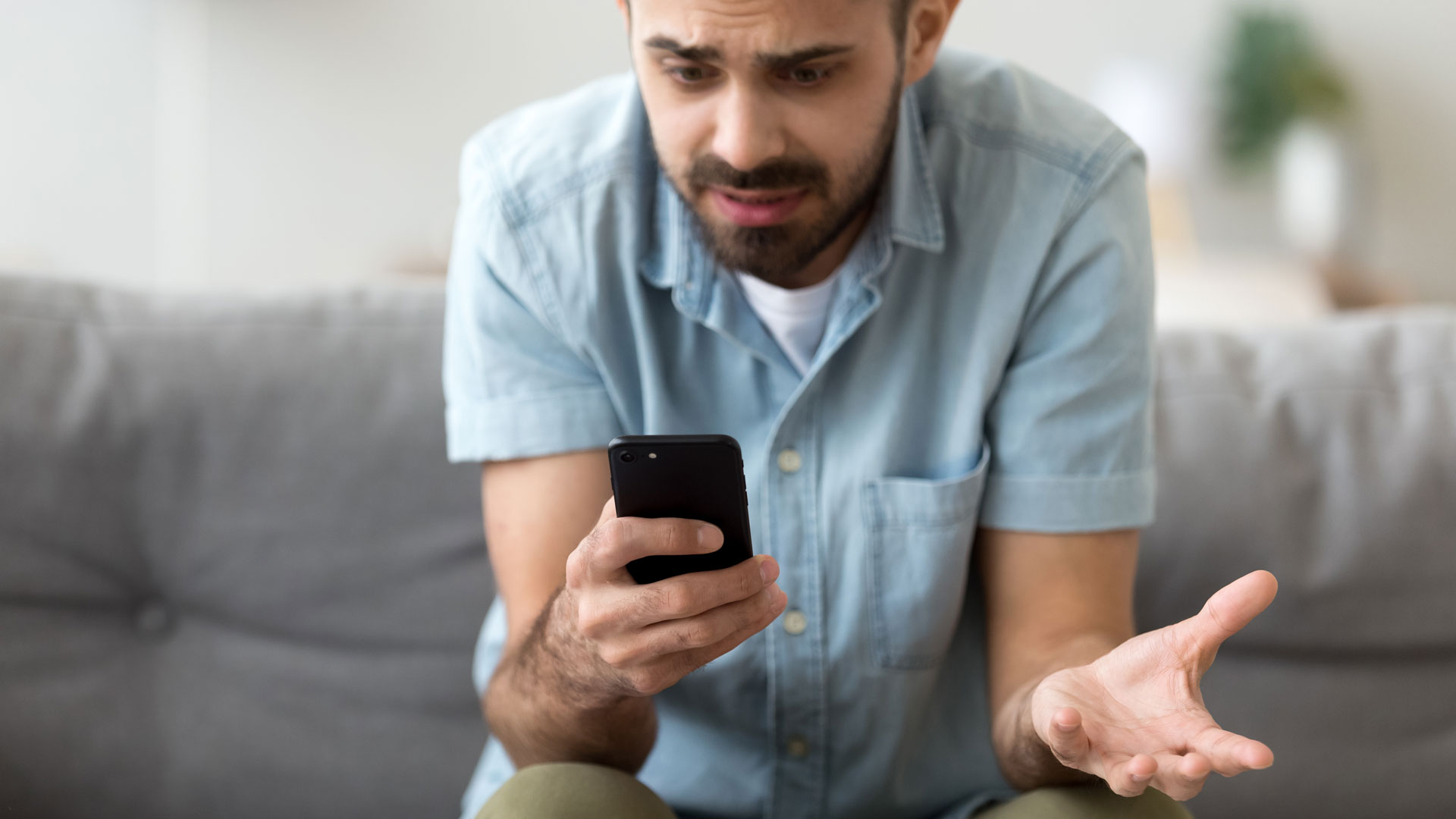Digesting the big network outage of 2024, and what carriers like AT&T got wrong
What we don't know

Sign up for breaking news, reviews, opinion, top tech deals, and more.
You are now subscribed
Your newsletter sign-up was successful
If you live in the US and you didn't get that call or text you were expecting today, it may not be your fault. AT&T experienced on Thursday an hours-long outage that, as of this writing, is ongoing (but may be quickly winding down).
And by outage, we mean no cell service at all for tens of thousands of customers, mostly AT&T ones, in multiple states. I learned about it early this morning via a text from a television news network. The producer asked if I'd heard about this big network outage. I hadn't, and joked that apparently Verizon wasn't affected because, well, we were talking and texting on their network.
After the call, I opened DownDetector, a decent online gauge of almost any online and network service's current health. It does not tap into these networks, and instead relies on real-time customer reports. DownDetector painted an alarming picture. At approximately 4am ET, all the major networks experienced a huge spike in outage reports. That bled into smaller networks, which use the big guys' network infrastructure, and which were also getting outage reports.
As I visited the AT&T, Verizon, and T-Mobile websites I noticed there were no alerts – just the usual pitches for smartphone deals.
I switched to social networks, where big companies like AT&T and Verizon often engage directly with consumers. There was nothing on X (formerly Twitter), not even in the replies space. Just more happy talk about their networks and, on Verizon, a post wondering if Beyonce could break the network (a holdover from her Super Bowl 58 ad).
I posted something on X to gauge the scale of the issue – and the number of replies shocked me.
How's your network this morning? DownDetector has multiple networks suffering through nationwide outages. Hard to say, though, if it's actually widespread. #verizon #att pic.twitter.com/uigDlPa4c5February 22, 2024
It would be hours before any of the major networks stepped forward to acknowledge the issues. Early on, T-Mobile said there was nothing wrong with its network. Verizon eventually gave me a similar comment. I noticed, however, that both Verizon and AT&T had started responding to customer complaints on X, and it was clear there were at least some issues.
Sign up for breaking news, reviews, opinion, top tech deals, and more.
Finally, AT&T sent me an official statement:
“Some of our customers are experiencing wireless service interruptions this morning. We are working urgently to restore service to them. We encourage the use of Wi-Fi calling until service is restored.”
The "some" part sounded like wishful thinking, considering that some states, like Texas, seemed to have lost almost all AT&T service.
Verizon's comment pointed to something I hadn't considered at first. A representative told me: "Verizon's network is operating normally. Some customers experienced issues this morning when calling or texting with customers served by another carrier. We are continuing to monitor the situation."
What the carrier meant is that when a big network like AT&T goes out, it makes it harder for other networks to do their job, meaning calls from Verizon and T-Mobile to customers on the AT&T network were also failing. It's fair to assume that Verizon and T-Mobile customers might log that as their own network's failure, since there would be no way for them to know about AT&T's problems.
So, what DID happen?
Still, the lack of information and explanation has opened the door to sometimes wild conjecture. Initially, because the outage seemed so widespread and network-agnostic, customers started comparing the incident to the recent Julia Roberts apocalyptic film, Leave the World Behind in which the internet, and phone and TV networks, going down is part of the plot. There is, though, no indication that this is a cyber attack.
Others have floated the idea of a solar flare. NASA did report a pair of strong ones in the last 24 hours, and such flares have been known to disrupt some communications. Still, the duration of this outage belies that possibility.
Maybe it's a hardware issue. Maybe not.
(Editor's note: On Friday AT&T revealed that the outage, "was caused by the application and execution of an incorrect process used as we were expanding our network, not a cyberattack.")
While I get that AT&T would like to perform a post-mortem before telling us what caused the Big Outage of 2024, I don't think they can wait that long. These providers already waited too long to acknowledge the outage and, in our current conspiracy theory-friendly climate, they can't afford to leave us in the dark for hours.
Long-term, this may be a reminder that our cellular infrastructure is not as resilient might think it is, or as we need it to be. Many Americans woke up to their networks being on the fritz this morning, and this is an equally alarming wake-up call for AT&T.
Clarification 2-22-24: Update post to make it clear that T-Mobile and Verizon did not experience an outage. T-Mobile sent TechRadar this comment:
"We did not experience an outage. Our network is operating normally. Down Detector is likely reflecting challenges our customers were having attempting to connect to users on other networks."
You might also like

A 38-year industry veteran and award-winning journalist, Lance has covered technology since PCs were the size of suitcases and “on line” meant “waiting.” He’s a former Lifewire Editor-in-Chief, Mashable Editor-in-Chief, and, before that, Editor in Chief of PCMag.com and Senior Vice President of Content for Ziff Davis, Inc. He also wrote a popular, weekly tech column for Medium called The Upgrade.
Lance Ulanoff makes frequent appearances on national, international, and local news programs including Live with Kelly and Mark, the Today Show, Good Morning America, CNBC, CNN, and the BBC.